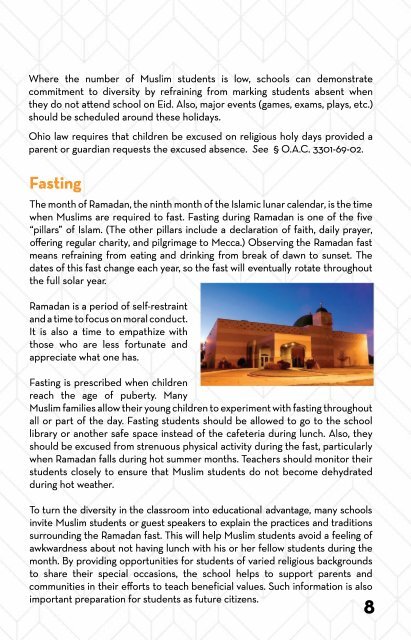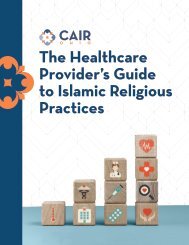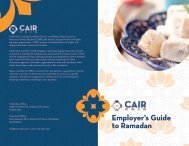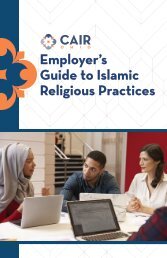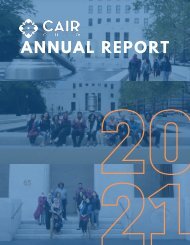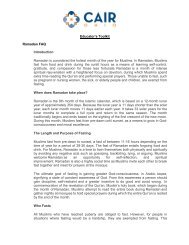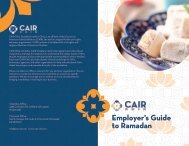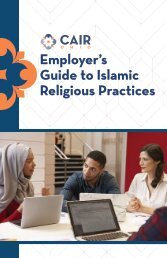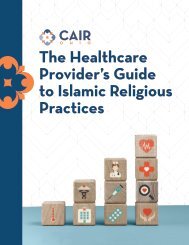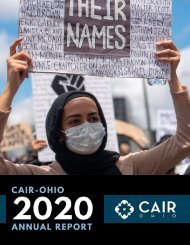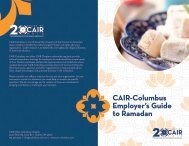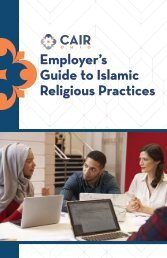CAIR-Ohio-Educators-Guide (2022)
- No tags were found...
Create successful ePaper yourself
Turn your PDF publications into a flip-book with our unique Google optimized e-Paper software.
Where the number of Muslim students is low, schools can demonstrate<br />
commitment to diversity by refraining from marking students absent when<br />
they do not attend school on Eid. Also, major events (games, exams, plays, etc.)<br />
should be scheduled around these holidays.<br />
<strong>Ohio</strong> law requires that children be excused on religious holy days provided a<br />
parent or guardian requests the excused absence. See § O.A.C. 3301-69-02.<br />
Fasting<br />
The month of Ramadan, the ninth month of the Islamic lunar calendar, is the time<br />
when Muslims are required to fast. Fasting during Ramadan is one of the five<br />
"pillars" of Islam. (The other pillars include a declaration of faith, daily prayer,<br />
offering regular charity, and pilgrimage to Mecca.) Observing the Ramadan fast<br />
means refraining from eating and drinking from break of dawn to sunset. The<br />
dates of this fast change each year, so the fast will eventually rotate throughout<br />
the full solar year.<br />
Ramadan is a period of self-restraint<br />
and a time to focus on moral conduct.<br />
It is also a time to empathize with<br />
those who are less fortunate and<br />
appreciate what one has.<br />
Fasting is prescribed when children<br />
reach the age of puberty. Many<br />
Muslim families allow their young children to experiment with fasting throughout<br />
all or part of the day. Fasting students should be allowed to go to the school<br />
library or another safe space instead of the cafeteria during lunch. Also, they<br />
should be excused from strenuous physical activity during the fast, particularly<br />
when Ramadan falls during hot summer months. Teachers should monitor their<br />
students closely to ensure that Muslim students do not become dehydrated<br />
during hot weather.<br />
To turn the diversity in the classroom into educational advantage, many schools<br />
invite Muslim students or guest speakers to explain the practices and traditions<br />
surrounding the Ramadan fast. This will help Muslim students avoid a feeling of<br />
awkwardness about not having lunch with his or her fellow students during the<br />
month. By providing opportunities for students of varied religious backgrounds<br />
to share their special occasions, the school helps to support parents and<br />
communities in their efforts to teach beneficial values. Such information is also<br />
important preparation for students as future citizens.<br />
8


